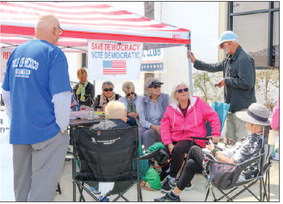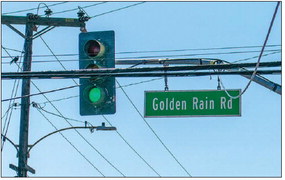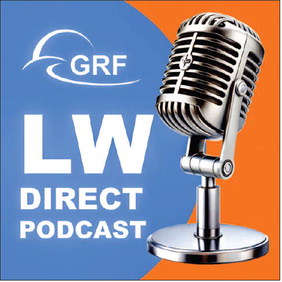COVID-19 fraud schemes on rise
SCAM ALERT
The U.S. Department of Health and Human Services Office of Inspector General is alerting the public about fraud schemes related to the novel coronavirus, also known as COVID-19. Individuals are using testing sites, telemarketing calls, text messages, social media platforms and door-to-door visits to perpetrate COVID-19-related scams. Fraudsters are offering COVID- 19 services in exchange for personal details, including Medicare information. However, these services are unapproved and illegitimate.
These scammers use the coronavirus pandemic to benefit themselves, and beneficiaries face potential harm. The personal information collected can be used to fraudulently bill federal health care programs and commit medical identity theft.
Protect Yourself
• Be cautious of any COVID- 19 testing site that requires your financial or medical information to receive a free test.
• Be mindful of advertisements for COVID-19 testing or treatments on social media platforms. If you make an appointment for a COVID-19 test online, make sure the location is an approved testing site. Check official government websites for a list of approved COVID-19 testing sites.
• Scammers are selling fake and unauthorized at-home COVID- 19 test kits in exchange for your personal or medical information. Make sure to purchase FDA-approved COVID-19 test kits from legitimate providers.
• Do not purchase or reproduce fake COVID-19 proof of vaccination cards, and do not fill in blank vaccination cards with false information.
• Offers to purchase COVID- 19 vaccination cards are scams. Valid proof of COVID- 19 vaccination can only be provided to individuals by legitimate providers administering vaccines.
• Photos of COVID-19 vaccination cards should not be shared on social media. Posting content that includes your date of birth, health care details or other identifiable information can be used to steal your identity.
• Be cautious of COVID-19 survey scams. Do not give your personal, medical or financial information to anyone claiming to offer money or gifts in exchange for your participation in a COVID-19 vaccine survey.
• Be mindful of how you dispose of COVID-19 materials such as syringes, vials, vial container boxes, vaccination record cards, and shipment or tracking records. Improper disposal of these items could be used by bad actors to commit fraud.
• Beneficiaries should be cautious of unsolicited requests for their personal, medical, and financial information. Medicare will not call beneficiaries to offer COVID-19-related products, services or benefit review.
• Be suspicious of any unexpected calls or visitors offering COVID-19 tests or supplies. If you receive a suspicious call, hang up immediately.
• Do not respond to, or open links in, text messages about COVID-19 from unknown individuals.
• Do not give your personal or financial information to anyone claiming to offer HHS grants related to COVID-19.
• Be aware of scammers pretending to be COVID-19 contact tracers. Legitimate contact tracers will never ask for your medical or financial information or attempt to set up a COVID-19 test. If you suspect COVID-19 health care fraud, report it immediately online or call 800-HHS-TIPS (800-447-- 8477).
—from the Department of Human and Health Services



